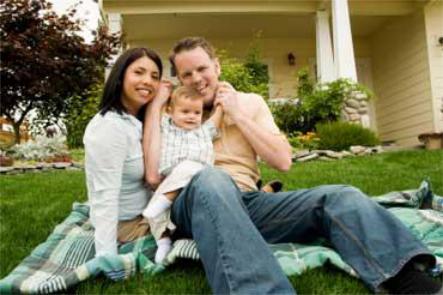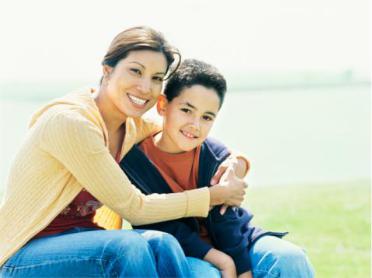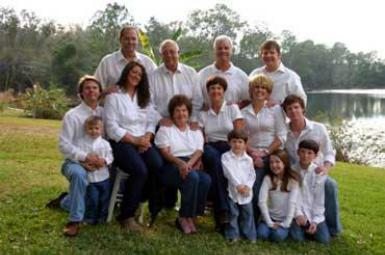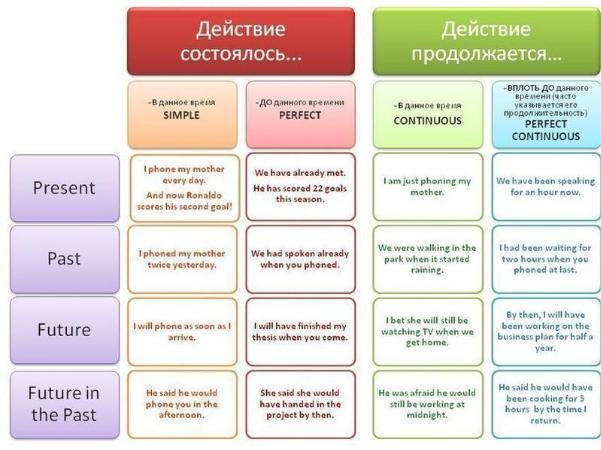
uchebnik_dlya_1_semestra
.pdf
МИНИСТЕРСТВО ОБРАЗОВАНИЯ И НАУКИ РОССИЙСКОЙ ФЕДЕРАЦИИ
ЮЖНО-УРАЛЬСКИЙ ГОСУДАРСТВЕННЫЙ УНИВЕРСИТЕТ
Ярославова Е.Н. , Белкина О.В., Колова С.М.,
Гейхман Л.К., Кайдалова Ю.В., Радостева В.С.
АНГЛИЙСКИЙ ЯЗЫК ДЛЯ ОБЩИХ ЦЕЛЕЙ:
Учебное пособие для студентов всех специальностей
Челябинск
2012
Министерство образования и науки Российской Федерации Южно-Уральский государственный университет
Кафедра иностранных языков
_____
Ярославова Е.Н. , Белкина О.В., Колова С.М.,
Гейхман Л.К., Кайдалова Ю.В., Радостева В.С.
АНГЛИЙСКИЙ ЯЗЫК ДЛЯ ОБЩИХ ЦЕЛЕЙ:
Учебное пособие для студентов всех специальностей
Челябинск Издательский центр ЮУрГУ
2012
ББК
Я
Одобрено учебно-методической комиссией факультета «Лингвистика»
Рецензенты:
к.п.н. Н.С. Шкитина, к.п.н. В.Б. Мещеряков
Ярославова, Е.Н.
___ Английский язык для общих целей: Учебное пособие для студентов всех специальностей /Е.Н. Ярославова, О.В. Белкина, С.М. Колова, Л.К. Гейхман, Ю.В. Кайдалова, В.С. Радостева. – Челябинск: Издательский центр ЮУрГУ, 2012. – 150 с.
Пособие предназначено для студентов начального этапа вузовской ступени иноязычной подготовки, его основная цель – систематизация и коррекция знаний, умений, навыков сформированных на предыдущей ступени обучения.
Модульная организация пособия позволяет поэтапно формировать основные навыки речевой деятельности. Тематически пособие охватывает основные ценностные доминанты современного мира: «Семья и окружение», «Роль иностранного языка в жизни современного человека», «Человек и культура», «Глобальные проблемы человечества»
Структура каждого модуля построена по следующей схеме: цель модуля, тексты для чтения с заданиями, активный словарь, комплекс лексико-грамматических упражнений, задания для развития навыков устной и письменной речи. Для управления самостоятельной работой пособие снабжено инструкциями, грамматика представлена в виде комментария.
ББК Ш
© Издательский центр ЮУрГУ, 2012

Module 1. There’s no place like home
Unit 1. Family
Lead in.
How do you define ―family‖?
Is your definition of a ―normal family‖ a married mother and father and their biological children living together under one roof? If not, what do you think a ―family‖ is — or can be?
Do you agree that the word family stands for
F—Forget
A—About M—Me I—-I L—Love Y-You
Have you ever stayed with a host family?
( http://learning.blogs.nytimes.com/2011/02/24/how-do-you-define-family/#comment- 145036)
Listening
Students from different countries are staying with the Russian families. After having unpacked their luggage they have met the Russian students and share their opinions of the host families.
Characters:
Troy Hopkins, a bachelor of Computer Operation, Chicago, Illinois, the USA,aged 22 Nick Ritchie, a senior student of Marketing, London, Great Britain, aged 21
Eve Spencer, an undergraduate student of Journalism, Montreal, Canada, aged 24 Alice Cameron, a student of Business School, Brighton, Great Britain, aged 23
Steve McNeal, a post-graduate student of sociology, Edinburgh, Scotland, Great Britain, aged 24
Boris Ivanov, an undergraduate student of sociology, PSTU, Perm, Russia, aged 21 Natasha Sokolova, a student of public relations, SUSU, Chelyabinsk, Russia, aged 20
Nastya Novikova a distant learning student of ecology, |
SUSU, Chelyabinsk, Russia, |
aged 19 |
|
1.Listen to the conversation and tick the questions the students ask.
1.We have much in common, don‘t we?
2.How do you like your host family?
3.What about independence?
4.Don't you think it's better to stay single?
5.What do you mean?
6.What family groups are uncommon nowadays?
7.What are the advantages and disadvantages of getting married?
8.What is a perfect example of an extended family?
9.Don‘t you just research the problems of the families?
10.Why do people marry?
11.Do grandparents, aunts and uncles, cousins, and nieces and nephews live together in Britain?
12.Why is the divorce rate high these days?
13.What priorities do single people have?
14.What are you trying to say?
3
WHAT A FAMILY IS
Troy: Let‘s get acquainted as we are going to spend so much time together. My name is Troy. Boris: I‘m Boris. I‘m glad to meet you all. I‘m a student of sociology.
Steve: Nice to meet you. I come from Scotland. I‘m in sociology as well. We have much in common, don‘t we?
Boris: What a fabulous coincidence! Don‘t you just research the problems of the families? I‘m writing a dissertation on the problem ―How families have changed in Russia‖.
Steve: The topic of my investigation is ―Family strengths and family values‖.
Boris: So we‘ve got plenty of things to discuss, I guess. By the way, how do you like your host family?
Steve: I‘d like to say, the family I‘m staying, with is the so-called extended one. They are so many to live under the same roof. Let me see … all in all – nine: grandparents, their daughter with her husband and two children, their son with his wife and a toddler.
Nastya: You‘re kidding! Nowadays extended family groups are uncommon. I mean several generations living in one household.
Steve: In that case I think I‘m fortunate to stay with such a family. So I‘ll keep an eye on their life and compare it with a British one.
Natasha: And now, do grandparents, aunts and uncles, cousins, and nieces and nephews live together in Britain?
Steve: The Royal family is a perfect example.
Alice: Probably being a member of a clan is a good thing. As for me I‘ve got neither brothers nor sisters, only my Мom. I believe having both parents is better. When people get married they never know what can happen in future. I mean divorce, single-parent family or remarriage. My Mom, for example, divorced with my father and hasn‘t remarried again.
Troy: Don't you think it's better to stay single? What are the advantages and disadvantages of getting married?
Nick: Well if you ask me, it all depends on your circumstances. Troy: What do you mean?
Nick: I mean that people's situations can be very different. Troy: What are you trying to say?
Nick: To come to the point, there are so many different motives for marriage that it's impossible to generalize about why people prefer married to single status.
Eve: Rubbish! It must be possible to compare living together with someone to living on your own. What about independence?
Boris: But you don't seem to realize that some married people live totally independent lives. Eve: That may be so, but for most people the whole point of marriage is to live together and possibly to raise a family. That's what this discussion's about.
Alice: In that case, it's obvious that children are a commitment for life. I guess that many single people have different priorities or else they believe that they would make unsuitable parents. Surely, there's more to marriage than having children.
Boris: If you're talking about getting married, the divorce rate is so high that these don't seem to be relevant any more. Why not just stay single. You can still live together with other people for as long as you find them compatible…
2. Listen to the conversation again. Fill in the gaps.
1.Steve: … We have much in common, don‘t we?
Boris: …
2.Boris: Don‘t you just research the problems of the families?
Steve: …
3. Boris: By the way, how do you like your host family?
4

Steve: …
4.Natasha: And now, do grandparents, aunts and uncles, cousins, and nieces and nephews live together in Britain?
Steve: …
5.Troy: Don't you think it's better to stay single? What are the advantages and disadvantages of getting married?
Nick: …
6.Troy: What do you mean?
Nick: …
7.Troy: What are you trying to say?
Nick: …
8.Eve: … What about independence?
Boris: …
Reading and vocabulary
1.Read and decide
Read Boris‘s story and define a) what family is; b) formulate its functions.
What are the basic family types?
Look at the photos and define the family type.
BORIS’S STORY
FAMILY SURVEY
A. The family is an old and fundamental social institution. In the past it was the centre of political, economic, educational, and religious activities. But the position of the family in society is different now. The family is an institution based on kinship. One of its functions is to replace and nurture the members of society. Every culture has rules and norms that shape the family in different ways. Kin refers to people related to
one another through common ancestry, marriage, or social agreement. According to the size of family unit, families are nuclear (husband, wife and children), extended (nuclear family plus other relatives), modified-extended (each nuclear family lives in separate houses, but there is visitation) and reconstituted or blended (new family that is the result of divorces and remarriages), single parent family (one parent raising children).
Families are who you love. Our families all ―look‖ different and it's always been so. A family is a care giving unit. It might consist of a couple: a mother, a father and children; a single parent and a child; grandparents and grandchildren; a sibling group.
Families are the foundation of society. They are where we come into the world from, where we are nurtured and given the tools to go out into the world, capable and healthy.
5

When families break down and fail to provide the healthy nurturing we need, the effects impact not only our own lives, but also our communities. In other words, we all pay for unhealthy families. If we ignore the suffering, we suffer the consequences.
In the past few decades, the world has seen major changes in the face of the family. Since 1975, the divorce rate has doubled resulting in the increase of single-parent households, remarriages and extended families.
According to the latest surveys, single parents maintain 27.3 percent of the family households with own children under 18. There are 2.1 million father-child and 9.8 million mother-child families. In the mother-child family groups, 42.2 percent of mothers have never been married.
Most of the time when a person thinks of the definition of a family, the image of a mother, father and children is what comes into the mind. That is actually the definition of a nuclear family, which is parents, and one or more children. However, there are more definitions that can be used to define a family such as a single-parent family which is one parent and a child or children. Extended family is when a nuclear family or single-parent family lives with any extended family members.
Family units take a variety of forms, all of which involve individuals living under one roof. The family form or structure does not indicate how healthy the family is or how they function. The family form is merely the physical makeup of the family members in relationship to each other without respect to roles and function.
B. More than 50 % of people live in nuclear families. A nuclear family consists of a mother, a father, and their biological or adoptive descendants, often called the traditional family. The nuclear family was most popular in the 1950‘s and 60‘s. The nuclear family can be a nurturing environment to raise children in love, to spend time with children, to support them emotionally, to low stress, and to provide a stable economic environment. In nuclear families, both adults are biological or adoptive parents of their children.
There are three types of married nuclear families depending on employment status of a woman and a man. In the first type, a man works outside the home while a woman works inside the home caring for children. 28 percent of all households fit this description. In the second type of married nuclear family, a woman works outside the home and a man cares for a children. This constitutes 2 percent of the families. In the third kind of married nuclear family, both a wife and a husband work outside the home, they are breadwinners.
C. One of the most striking changes in family structure over the last twenty years has been the increase of single parent families. In such a family there is only one parent in household raising children. More than half of all children will spend some of their lives in a single-parent family. Currently, 88 percent of these families are headed by women. In 1970, the number of single parent families with children under the age of 18 was 3.8 million; by 2005 the number had more than doubled to 9.7
6

million. In single parent families parents and children are more willing to co-operate with each other to find solutions to solve household problems.
D. Since 2005 21% of all people have lives in extended families. An extended family is two or more adults from different generations of a family, sharing a household. It consists of more than parents and children; it may include parents, children, cousins, aunts, uncles, grandparents, foster children etc. The extended family live together for many reasons: raise children, care for a disabled relative, or tackle crucial
financial problems. Sometimes children are brought up by their grandparents when their biological parents died or no longer can look after them. Extended families can be found all over the world in different communities and countries. The number of these families has increased by 40 percent in the past ten years. There are three types of extended families: one, two and three generation families. Forty eight percent of all extended families live in a two generation family.
Vocabulary practice
1. What do we call these people? Choose from the list below:
1)your mother‘s father;
2)your father‘s sister;
3)your father‘s brother‘s son;
4)your sister‘s daughter;
5)your mother‘s second husband (who is not your father);
6)your father‘s grandmother;
7)your son‘s wife;
8)your daughter‘s husband;
9)your daughter‘s daughter;
10)your sister‘s husband;
11)half-brother/half-sister.
a) grandfather, b) father, c) mother, d) son, e) daughter, f) grandson, g) aunt, h)uncle, i)cousin, j) nephew, k) niece, l) father-in-law, m) daughter-in-law, n) in-laws, o) parents, p) great grandmother, q) husband, r) brother, s) sister
2. Restore the text using the words below:
a) stepchildren, b) brother, c) name, d) younger, e) close, f) get married, g) cousins, h) single, i) stepfather, j) distant, k) ex-husbands
My 1)______ is Tom Smiles. I‘m the eldest of all the children. My second 2)_______ is Jack. The youngest is Michael. My 3)_____________ sister is two years younger than me. Some time ago she got engaged to Mr. Brown. They are going to 4)____________ next month. I have many relatives. My grandparents are dead. But I have a number of 5)__________ and 6)______________relatives: two uncles, four aunts and about a dozen cousins. One of my
7
7)____________ has lost her husband and now she is a widow. An uncle of mine has been 8)________________ for many years, but he married recently. He is very kind to his 9)__________ and treats them as a real father would do. They love and respect their 10)______________ . My second aunt has been married three times. She gets on well with her three 11)_______________ .
3. Match A and B columns to describe a family type.
A. Types of Families |
|
B. Description |
|
1) |
single parent |
|
a)husband, wife and children with other relatives |
2) |
nuclear |
|
b) one parent raising children |
|
|
|
|
3) |
extended |
|
c) when two people re-marry, each with children from |
|
|
|
previous relationships |
4) |
modified-extended |
|
d) husband, wife and children without no other relatives |
5) |
reconstituted |
or |
f) a group of relatives who do not live together but keep |
|
blended |
|
in regular contact |
4. Multiple-choice quiz.
Choose the correct answer to each question.
1)What is a family?
a)a group of people linked by blood
b)a group of people linked by blood, marriage or adoption
c)a group of people linked by marriage
2)Which one of the following would describe the modified extended family in the 21st century?
a)parents and dependent children living together
b)aunts, uncles and grandparents living in a household with adults and dependеnt children
c)adults and dependent children maintaining close links with other relatives who may not be living under the same roof
3.What is cohabitation?
a)traditional families
b)couples living together in a sexual relationship without being married
c)couples living together before getting married
4.Which four of the following characteristics would describe a traditional family?
a)with children
b)equal pay for both partners
c)a geterosexual couple
d)a male breadwinner
e)married
5.What does patriarchal mean?
a)male dominated
b)capitalist
c)feminist
6.What is the modified extended family?
a)a group of extended kin who live under the same roof
b)a group of relatives who don‘t live together but keep in regular contact
c)parents and dependent children living in one household
8

Grammar Practice
Go to Grammar Focus. Study basic tense forms. You may also visit
http://www.ego4u.com/en/cram-up/grammar,
http://www.study.ru/support/handbook/verb2.html
1. Put the verbs |
in Present Simple or Present Continuous |
|||
|
|
|
|
|
a) enjoy |
b) like |
c) attend |
d) have |
e)live f) do g)go h)fly i)not have |
j)start |
k)keep |
|
|
|
Mexico. The Castillo Balderas family
The Castillo Balderas family 1)_____in a small brick house in Buenos Aires. The family are often on the roof of their house with most of their possessions. Ambrosio built their house, like most other families in the area. He is a man who is always on the move. His day often 2)________at 4 a.m.; he 3)_________more work on the family home, 4)_______a job with a wholesale produce distributor, and is a freelance metal-worker.
Hid wife Carmen 5)__________a job outside the home but has plenty to keep her busy. She 6)__________the household spotlessly clean and highly organized, despite having four young children. Cruz, Nialit, and Brenda 7)________Mexican Heroes Elementary School, and the youngest son, Antonio, 8)________ to the local kindergarten.
In the evenings, after a long day, the family 9) ________relaxing. And now the parents 10)_________TV, but the children 11)______________music together.
2. Put the verbs in Present Simple or |
Present Continuous |
|
|
|||
a) live b) go |
c) be |
d) balance |
e) attend |
f) come |
g) not have |
h) spend |
i) have |
|
|
|
|
|
|
9
